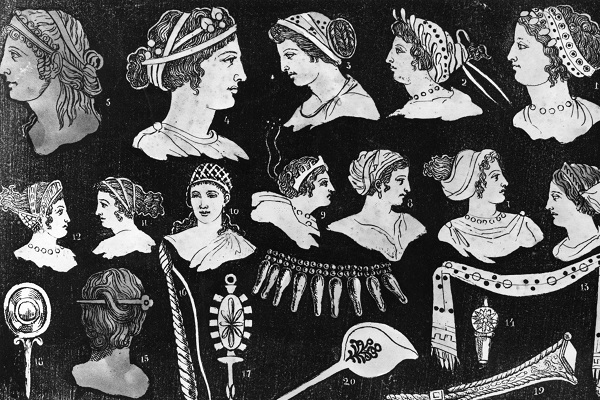To my Excellent Lucasia , on our Friendship.
I did not live until this time
Crowned my felicity –
When I could say without a crime
I am not thine, but thee.
This carcass breathed, and walked, and slept,
So that the world believed
There was a soul the motions kept;
But they were all deceived.
For as a watch by art is wound
To motion, such was mine:
But never had Orinda found
A soul till she found thine
Which now inspires, cures and supplies,
And guides my darkened breast:
For thou art all that I can prize,
My joy, my life, my rest.
No bridegroom’s nor crown-conqueror’s mirth
To mine compared can be:
They have but pieces of this earth,
I’ve all the world in thee.
Then let our flames still light and shine,
And no false fear control,
As innocent as our design,
Immortal as our soul.
It’s often asked whether Katherine Philips should be counted as a lesbian poet. She married at sixteen but, given that that was in the middle of the seventeenth century, this doesn’t tell us much about her own preferences. A series of poems to female friends does, however, speak of very close relationships which Philips chose to describe using the language of love poetry.
‘Lucasia’ was one of these friends. Her real name was Anne Owens and she belonged to Philips’ ‘society of friendship’. This was a circle of acquaintances celebrated by Philips in her poems and to whom she gave classical pseudonyms. ‘Orinda’, mentioned in this poem, is Philips herself. Other women belonged to this circle but it was not exclusively feminine.
It’s easy to see why we might conclude, from this poem, that Philip’s friendship with Anne Owens was a passionate one. Philips’ declaration that ‘I am not thine, but thee’ is just the sort of hyperbolic expression of devotion we associate with poems about erotic love. The last stanza in particular, pleading an ‘innocent…design’ and resting on a vision of ‘our flames’ which are ‘immortal as our soul’, sounds like a poem about wooing (perhaps by Marvell or Donne).
But it would be wrong to focus on these details alone and to conclude from them that this is a poem about romantic attachment. We should take Philips seriously when, telling us that her joy is superior to a bridegroom’s, she says that her relationship with Lucasia is different from that of a husband for a wife. She isn’t contrasting heterosexual love with homosexual love – she is asking us to believe her when she says that her poem is on ‘Friendship’.
So why the erotic language? Partly because the tradition of love poetry is a very powerful resource upon which Philips can call to describe her friendship. We are familiar with stories about how love can transform, how it can make the whole world seem different in the twinkling of an eye. Philips wants to apply this sort of narrative to her friendship with Anne Owens.
Before they were friends, Philips says, she was more like a machine than a person. She was a ‘watch’ with an ingenious ‘motion’ (also the name for a puppet show) or a ‘carcass’ which moved and breathed, but she wasn’t really alive. She moved the way Descartes said animals did, or like the universe according to Newton – as something run on clockwork.
Friendship, however, has added a new dimension to that universe. Now she has ‘a soul’. What is this ‘soul’? It is something mysterious which ‘inspires, cures and supplies’ Philips’ life. It grows from the friendship she shares with a woman she describes as ‘my joy, my life, my rest’. It is that single and common bond, shared indivisibly by both women.
It says more about us than it does about Katherine Philips that, confronted with this kind of argument, we instinctively assume it must really be about sexual desire. There’s no way to look inside her heart, but we find it hard to accept that someone really might have thought that her friendships were more important than her sexuality as a way of understanding herself. We stumble over the thought that sex could be transformed into a way of thinking about friendship rather than the other way around.
Part of the reason we drift back to speculating about Philips’ sexuality is that lyric poetry, as a form of writing, pushes us that way. It’s a mode of poetry which has historically been used to explore countless aspects of life including politics, faith and the natural world. But its association with erotic love has always reasserted itself as the most important. Sexual desire is its default topic. But it has never been the only one, and it has never been the only thing that makes us who we are.






Comments